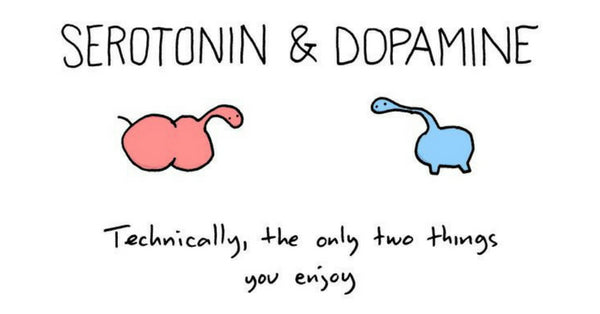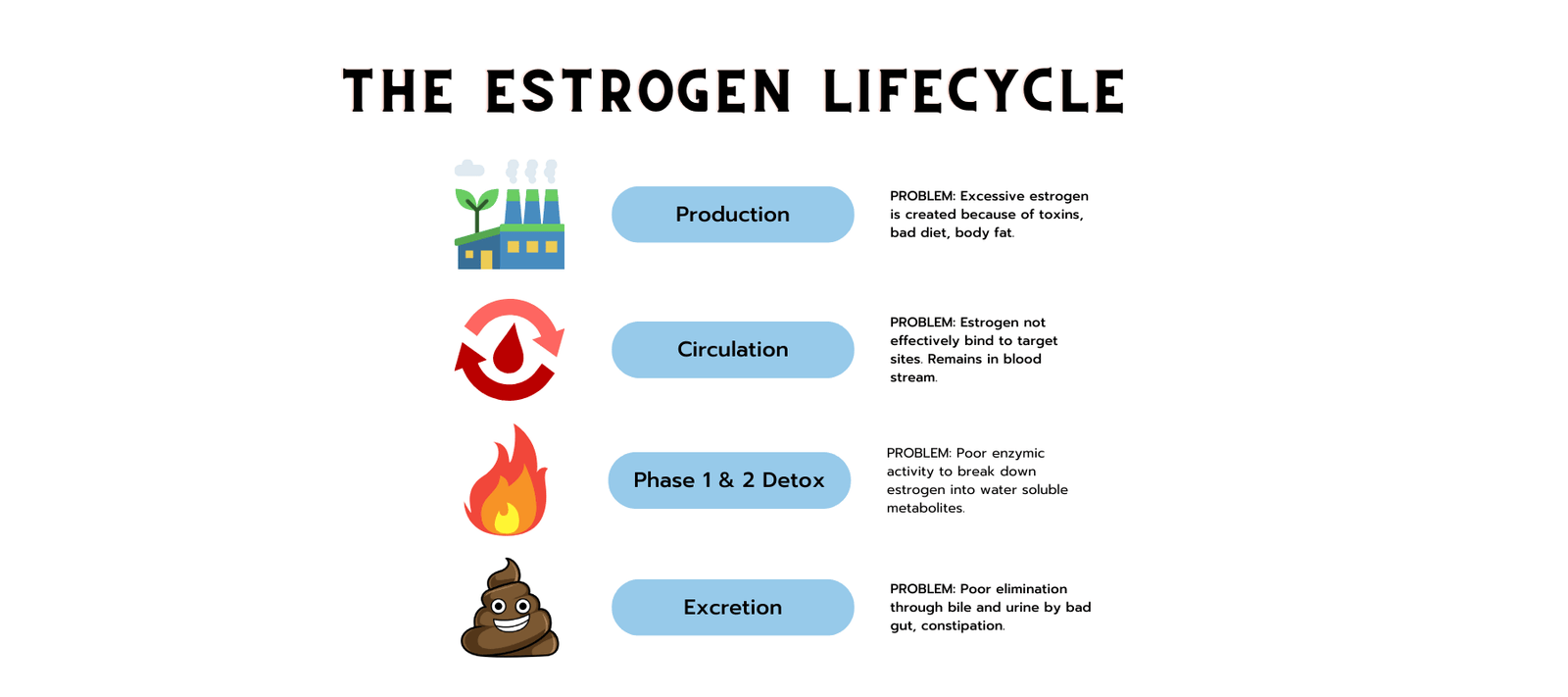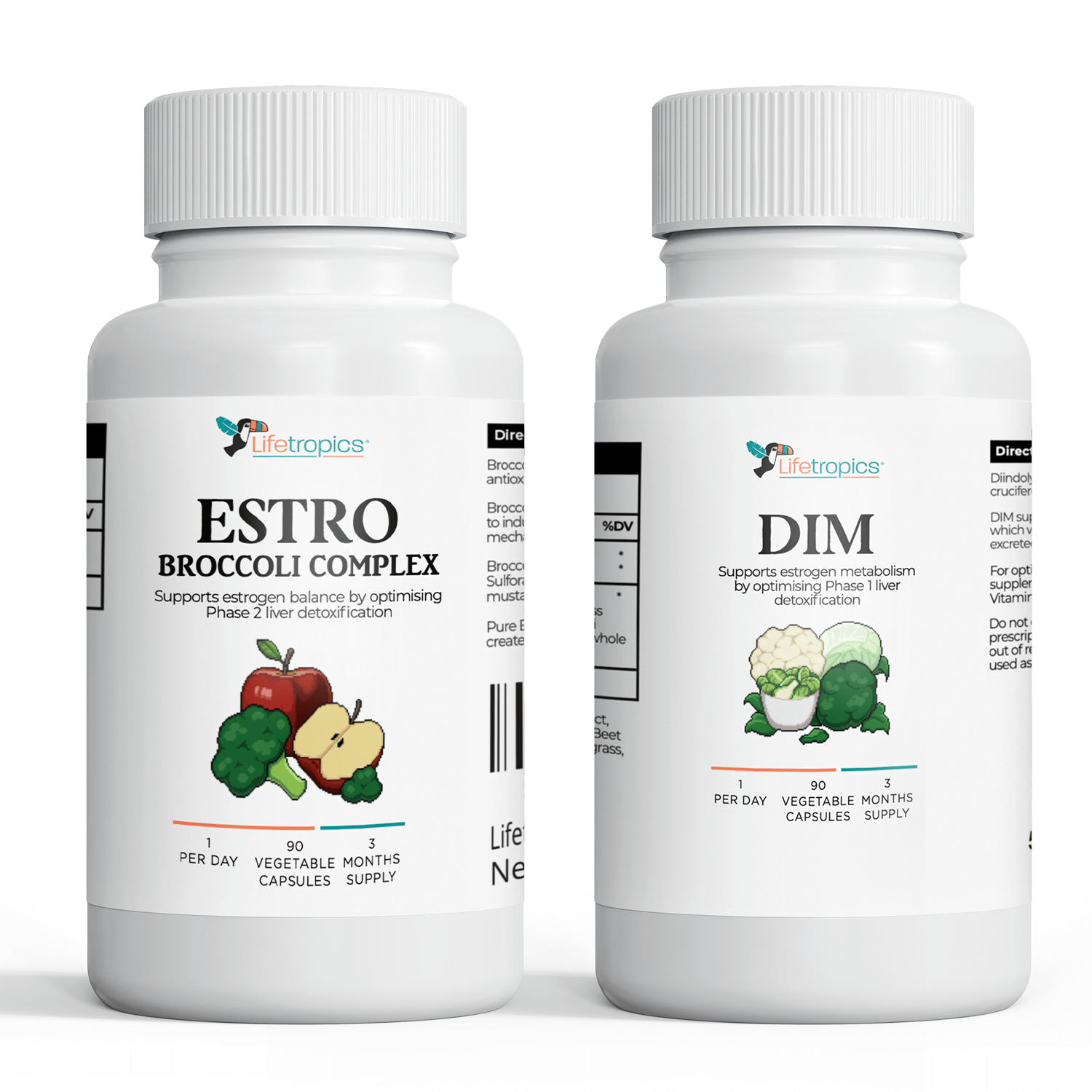L-Tryptophan is a naturally occurring amino acid which is used to create Serotonin, the "feel good" neurotransmitter. It is a gentler and slower-acting Serotonin precursor compared to 5-HTP, making it a better choice for sustained and long-term use.
Table of Contents:
- Quick overview of L-Tryptophan
- Why take L-Tryptophan?
- Studies on mood
- Studies on memory and learning
- L-Tryptophan dosages
- You might also want to consider 5-HTP
- Stack L-Tryptophan with Vitamin B6 to produce more Serotonin
Quick overview of L-Tryptophan
- Benefits: Anxiety and Mood
- Actions: L-Tryptophan is an amino acid which is used to create 5-HTP and then Serotonin, the "feel good" neurotransmitter in the blood-stream.
- Dietary Sources: Foods high in protein e.g. oats, chicken, turkey.
- Who is it good for? People low in Serotonin typically feel "down", crave chocolate and don't eat a lot of protein.
- Quality of studies: Comprehensive human research has been done on L-Tryptophan’s ability to safely increase Serotonin levels.
- Stacks with: Vitamin B6 to help L-Trytophan metabolise into Serotonin.
- Don't stack with: Any other Serotonin supplement to avoid desentizing your Serotonin receptors. Stacking serotonin supplements can also be a health risk.
- Recommended dose: 250mg - 425mg /day
- Cycling: Not required - good for long-term use.
- Alternatives:5-HTP for a faster, more short-term boost of Serotonin.
Why take L-Tryptophan?
Research has shown that L-Tryptophan's role in brain Serotonin synthesis is an important factor involved in mood, behaviour and cognition.

It is worth noting that Serotonin production is nutrition-dependent; Serotonin cannot be produced without the L-Tryptophan we get from high protein foods.
People who don't produce enough Serotonin will typically feel "down", crave chocolate (which also provides L-Tryptophan) and can greatly benefit from either improving their diet or taking a Serotonin supplement like L-Tryptophan or 5-HTP.
These two supplements are quite similar but with one stark difference: Once ingested, L-Tryptophan is first converted into 5-HTP, which is then used to create Serotonin.
Taking 5-HTP "skips" a part of the process and causes a much more immediate and uncontrolled rise of Serotonin.
Since L-Tryptophan is reliant on enzymes to be converted into 5-HTP (which control how much is produced), you get a much more gentle rise and natural of Serotonin.
For this reason, L-Tryptophan is considered much more sustainable to be used for the long-term as a Serotonin supplement.
Studies on mood
L-Tryptophan's effect on mood is well documented. Notably, it is seen to have varying levels of effectiveness at lifting mood; seen to depend on (1) just how deficient a person's Serotonin levels currently are and (2) how well their body synthesises L-Tryptophan into Serotonin, the "feel good neurotransmitter".
1. Women are more likely to benefit than men from L-Tryptophan for mood response. (McGill University - 1)
2. L-Tryptophan and 5-HTP were both seen to increase mood compared to placebo during human trials. (University of Queensland - 2)
3. An Oxford University placebo-controlled study found that "Tryptophan supplementation induces a positive bias in the processing of emotional material in healthy female volunteers." (University of Oxford - 3)
4. An animal study which restricted L-Tryptophan intake from diets reported increased levels of anxiety and lack of motivation during swimming tests. (Limei Zhang, MD et al - 4)
5. L-Tryptophan was seen to give human subjects a feeling of calm but not sleepiness. (Winokar - 5)
Studies on memory and learning
1. A University of Texas review of L-Tryptophan research prior to 2009 found that numerous experimental human studies have shown L-Tryptophan to benefit learning, memory and other cognitive processes for all kinds of people; not only people deficient in Serotonin. (6)
2. Human subjects who had high L-Tryptophan diets prior to long-term memory tests performed better than those with deficient diets (Maastricht University - 7)
3. Tests on word recognition and identifying abstract shapes found that deficient level of L-Tryptophan impaired long-term memory consolidation and problem solving (Universiteit Maastricht - 8)
4. "Tryptophan depletion has also been shown to impair learning on visual discrimination and memory retrieval, episodic memory, stimulus-reward learning, and cognitive flexibility, among other cognitive processes, although more studies are needed to test the reliability of these results." (University of Texas - 6)
L-Tryptophan dosages
We recommend taking 250mg - 425mg per day. This is the average dosage used in the studies mentioned in this guide.
Unlike 5-HTP, you also don't need to cycle L-Tryptophan on-and-off. In other words, it's safe to take long-term. This is because it's breakdown into Serotonin is controlled by enzymes.
As mentioned before - don't take two Serotonin at the same time. It's dangerous and will also make you desensitized to Serotonin.
You might also want to consider 5-HTP
For those of us who want a more immediate and bigger increase in our Serotonin levels, consider taking 5-HTP.
It's worth bearing in mind that because 5-HTP is much more potent, it's best used on a short-term basis. For longer periods of use, stick with L-Tryptophan.
Stack L-Tryptophan with Vitamin B6 to produce more Serotonin
When L-Tryptophan converts into 5-HTP and then Serotonin, it makes use of your Vitamin B6 supply.
We get Vitamin B6 from fish, beef liver and other meats including chicken. Here's a picture of food sources:

To maximize the amount of Serotonin you produce from L-Tryptophan, taking a Vitamin B6 supplement can help to increase the amount of Serotonin your L-Tryptophan is able to produce.
References:
- McGill University - https://www.ncbi.nlm.nih.gov/pubmed/8914119
- University of Queensland - https://www.ncbi.nlm.nih.gov/pubmed/11869656
- University of Oxford - https://www.ncbi.nlm.nih.gov/pubmed/16767422
- Limei Zhang, MD et al - https://academic.oup.com/jnen/article/65/6/562/2645275
- Winokar - https://www.ncbi.nlm.nih.gov/pubmed/3081933
- University of Texas - https://www.ncbi.nlm.nih.gov/pmc/articles/PMC2908021
- Maastricht University - https://www.ncbi.nlm.nih.gov/pubmed/17229463/
- Universiteit Maastricht - https://www.ncbi.nlm.nih.gov/pubmed/15206734









Leave a comment (all fields required)